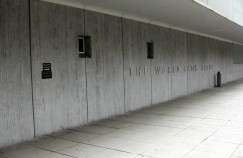Development should improve lives and not cause harm. Yet, whether it’s a dam project in Mexico or an expanded highway in India, too often development projects have adverse impacts on the human rights of communities, resulting in physical and economic displacement and degradation to the environment on which their lives depend. It is not uncommon to find that communities disagree with one part of or reject an entire project outright; that compensation for land, livelihood and property may be inadequate or completely absent; or that critically important issues, such as resettlement plans for displaced people, are a mere afterthought.
By the time a community learns about the possible negative impacts of a project, however, it can be too late. Key policy decisions by governments and funding agreements with public and private sources have already been made. Project designs have been finalized, and project implementation may have already begun. Even if and when communities learn about development projects, the information is often incomplete or inaccessible to those most affected.
In April 2013, CIEL and International Accountability Project (IAP) launched the Early Warning System (EWS), the first web-based tool to map and centralize information on development projects funded by international financial institutions that have the highest likelihood to adversely impact human rights worldwide. Users can search by location, sector, or even specific rights that may be threatened.
With the Early Warning System, we aim to minimize the existing knowledge gap by ensuring that communities have the information they need to understand proposed projects and their impacts early in the development process, to identify the banks and corporations involved in financing these projects, and to learn about advocacy strategies they can incorporate into their existing campaigns.
Visit the Early Warning System and sign up for alerts based on location, sector, or specific rights that may be threatened.






